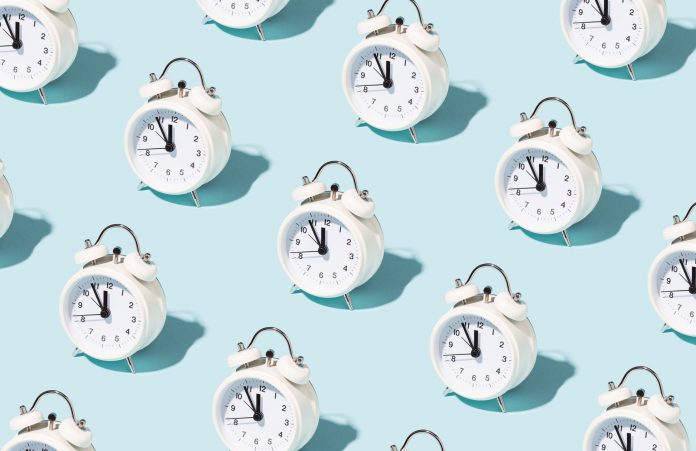Fall back, spring forward. We’ve all heard the saying, and it helps people remember which way to set their clocks for the start and end of Daylight Saving Time. Although it’d be nice to gain an hour of sleep twice a year, that’s not the case. Starting Sunday, March 12 at 2 a.m., we’ll all lose an hour. Altering your sleep schedule, or having poor sleep habits to begin with, can have a greater effect on your health than you may think.
“With Daylight Saving Time, we lose an hour of sleep, which causes significant fatigue in most people and can linger for days or weeks,” said Martha Yanci Torres, M.D., Mayo Clinic Health System neurologist and sleep specialist. “To minimize the impact, you can make gradual adjustments.”
[Related: Mattress Matters]
She provides this advice:
- Go to bed 15 minutes early, starting several days before the change, and increase by 15 minutes every couple of nights. Make an extra effort to be well-rested the week before the time change.
- If you feel sleepy the Sunday after the change to Daylight Saving Time, take a short nap (15 to 20 minutes) in the early afternoon—not too close to bedtime. Assess how a nap affects your sleep quality. For some, napping can make nighttime sleeping harder. But for others, a short nap can be revitalizing without ruining their night’s sleep.
- Avoid sleeping in an hour longer in the morning.
- In general, you should try to go to bed and wake up at the same time each day. This helps your body regulate its sleep. If possible, wake up at the same time on the weekends too, which makes Monday mornings easier to bear.
“Regardless of the time of year, proper sleep is an essential part of life,” Dr. Yanci Torres said. “There are many benefits to practicing good sleep health, as well as risks for cutting sleep too short.”
Dr. Yanci Torres explained the benefits and risks:
Learning and memory. Sleep allows the brain to better process new experiences and knowledge, increasing understanding and memory.
Metabolism and weight. Sleep helps regulate the hormones that affect and control appetite. Studies have shown that during sleep deprivation, the normal hormonal balance is affected and appetite increases.
Cardiovascular. Serious sleep disorders, such as sleep apnea, have been linked to hypertension, increased stress hormone levels and irregular heartbeat.
Mood. Insufficient sleep can make people more agitated or moodythe following day. Chronic sleep deprivation can contribute to long-term mood disorders, such as depression or anxiety.
Immunity. During sleep, the immune system releases proteins called cytokines, which can help deal with stress, fight infections and decrease inflammation in the body. Without enough sleep, these protective proteins and other important infection-fighting cells are reduced. Our body needs adequate sleep to fight infections and inflammation.
Alertness. Lack of sleep can have a toll on perception and judgment. In the workplace, its effects can be seen in reduced efficiency and productivity, errors, and accidents. It can also be deadly, such as drowsy driving fatalities.
[Related: The Importance of Friendships]
“Make sleep health a priority, and you’ll start seeing the positive effects,” Dr. Yanci Torres added.






